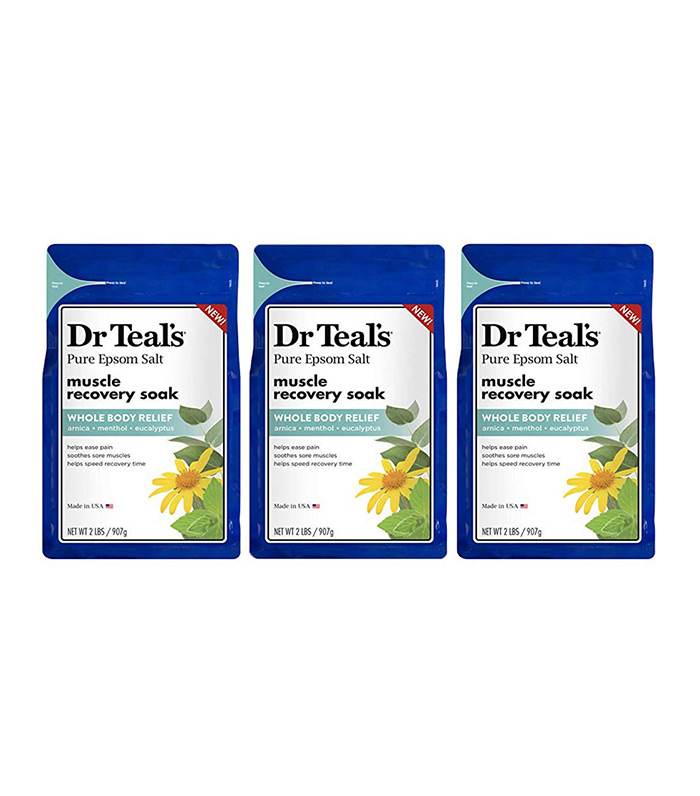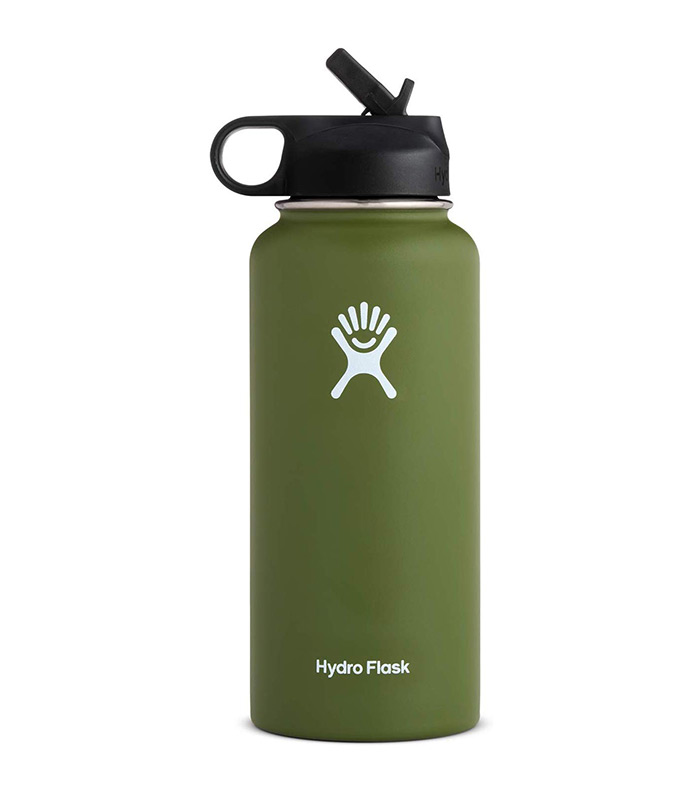I'm 46 and Running My Third Marathon—Here's How I'm Doing It
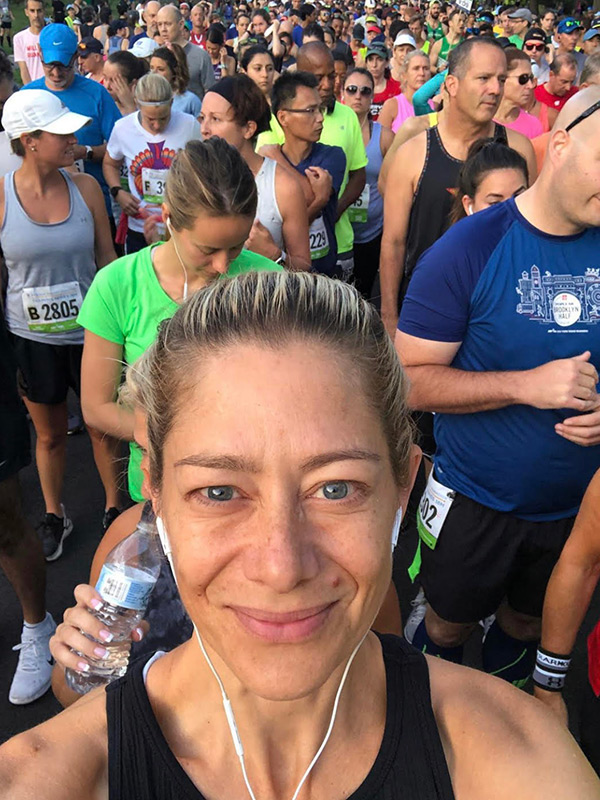
Training for a marathon certainly takes commitment. At a minimum, there must be some pleasure derived from running, or it will be a long 16 weeks of training. That being said, anyone can develop a passion for running and find the drive in themselves to run a marathon. More often than not, people say to me, "Oh, I could never run a marathon. I can barely run a mile." Well, guess what: I could barely run a mile way back when when I first got interested in running, but if you try and practice and stick to it, before you know it, you can run three, then five, then seven. Soon enough, you are signing up for your first half marathon. The runner's high is real—it's this exhilarating sense of health and well-being, like you could run forever.
This year, I will be running my third NYC Marathon. I seem to be on the road of one per decade with my first at age 24, then 38, and now 46. I find training is always easier in the summer months. Summer vacation with my family provides me an extra kick start with nice, leisurely morning runs and no pressure of school or work.
How I Train
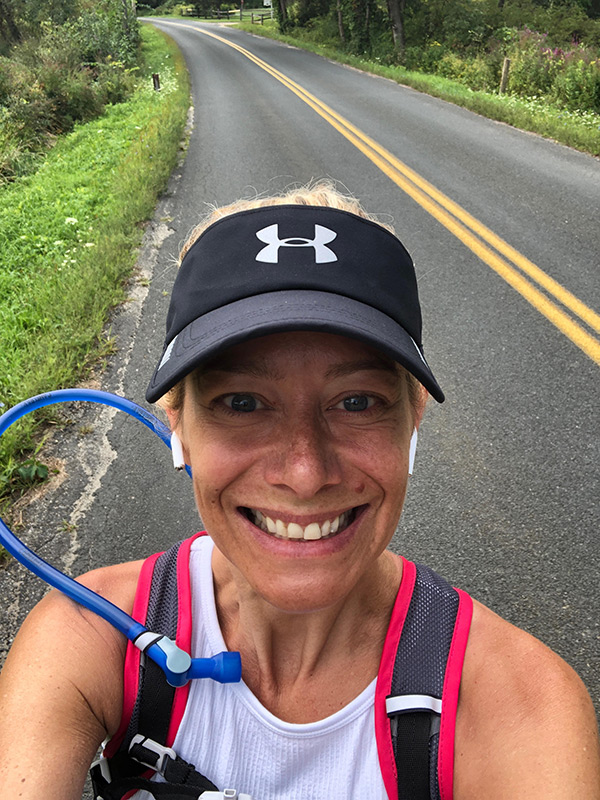
My daily routine training for the marathon definitely varies by day of the week, time of year, and which run I am scheduled to do. Long runs are always on the weekend—Saturday or Sunday—and I like to go early. So I wake up and have some coffee and light breakfast, steering away from dairy and sticking to simple foods like toast, a bagel, or oatmeal; one cup of coffee; and some water. Hydration is key!
During the week, I like to run in the a.m. before work, but as fall sets in and the mornings are too dark and early for it to be safe, I go after work, usually between 6 and 8 p.m. and enjoy the New York City sunsets. I take full advantage of both weekend days and then run after work two to three times per week. Even when I'm tired and it's hard to find motivation on a cold, dark evening, I remind myself of the goal and how I never regret a run—not ever.
Running isn't the only exercise I get. I mix in core fitness and cycling on our home exercise bike on "flex" days. Keeping a strong core is crucial. It makes running that much easier and helps prevent the aches and pains that pop up as we age. In fact, my nagging hip pain that can start at about mile 12 disappears when I faithfully do twice-weekly squats and roll my hips out on a pressure ball. I indulge in an occasional massage, and I am a big believer in acupuncture. A nice hot bath also goes a long way, especially after a long run.
What I Eat
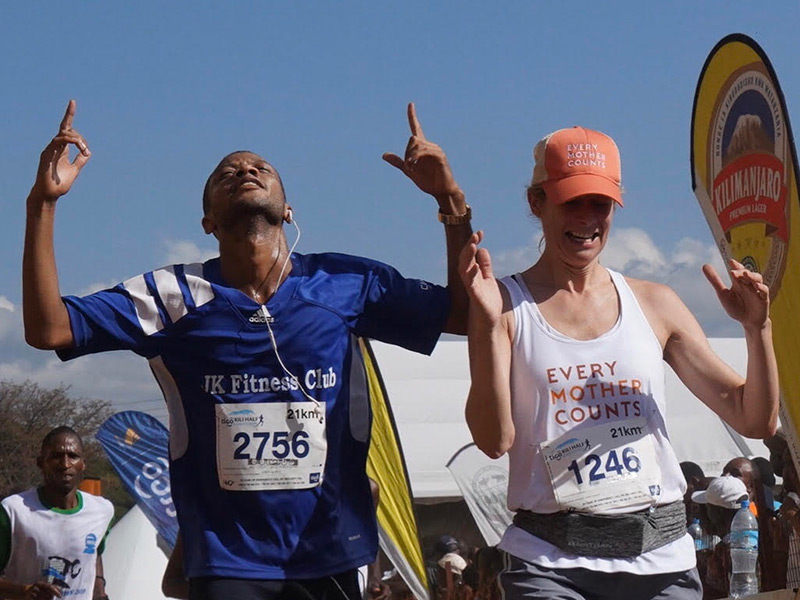
My diet is always pretty healthy and balanced, so I don't need to change it all that much. I try to stick to the Mediterranean diet. In the weeks before, I keep it simple, avoiding too much red meat, spicy foods, heavy sugar, and alcohol. I try to minimize my alcohol intake while training for a marathon to one to two times a week and stick to one to two glasses of red wine only. I'm not a big dessert person, but I avoid desserts and alcohol at the end. I start carbo-loading a full two to three weeks before the marathon, eliminate alcohol completely for the last four weeks, and try to get at least seven hours a sleep a night.

The week before, I eat carbs as much as possible with lots of pasta dinners! On race day, I eat fresh bagels and bananas for breakfast and try to stick to one cup of coffee—needing to stop and use the bathroom during the race is a major time killer!
My Biggest Motivation
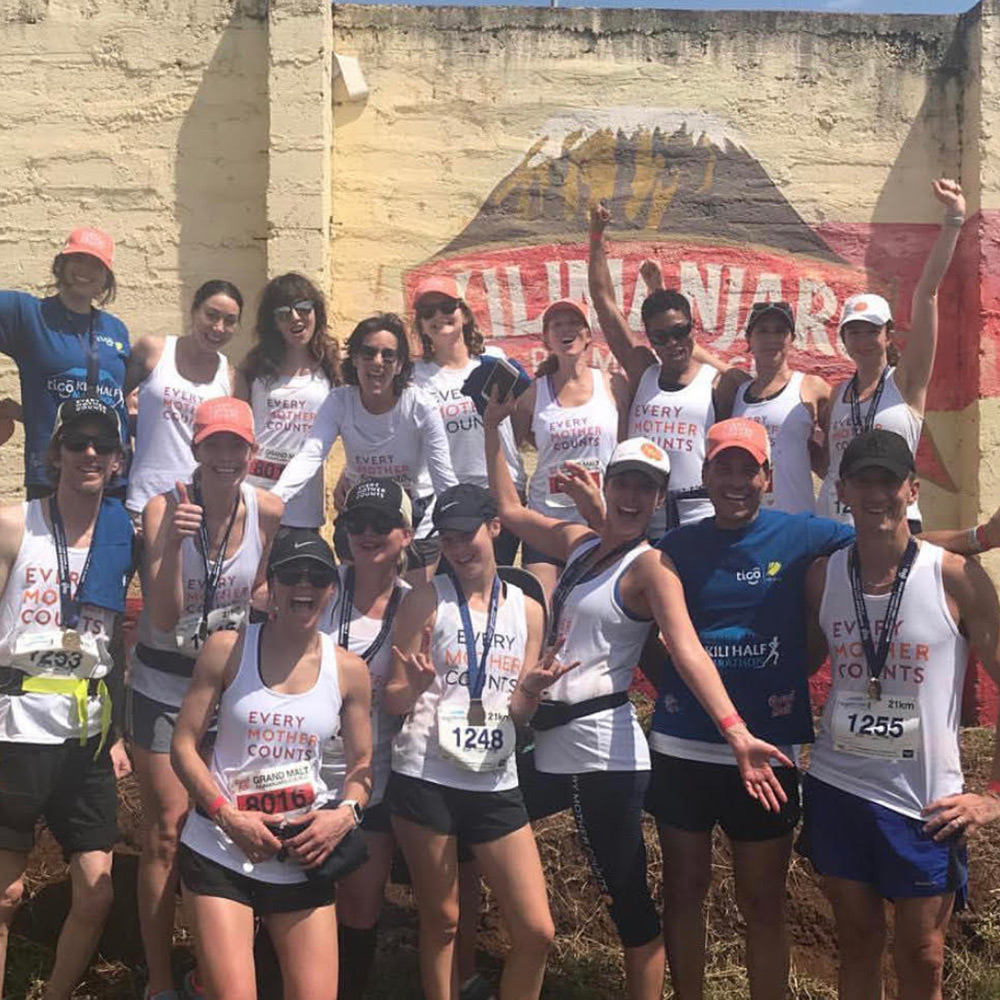
Probably the most important motivator is that I run for charity—specifically Every Mother Counts. As a cardiologist who cares for pregnant women with heart disease, I see firsthand how cardiovascular disease threatens the lives of pregnant women. EMC raises awareness and provides funding to prevent and reduce maternal mortality around the world. This year, we have made it a family affair, with my husband, Eli, also running for EMC.
November 3 is almost a week away, and we feel ready and excited for race day! Come cheer us on.
Jennifer Haythe, MD, is a cardiologist in New York City. She is currently an assistant professor of medicine in the division of cardiology at the Center for Advanced Cardiac Care at Columbia University Medical Center and co-director of the Women's Center for Cardiovascular Health.
Next up: 7 Ways I Learned to Love Running When I Forced Myself to Do a 5K
Disclaimer
This article is provided for informational purposes only and is not intended to be used in the place of advice of your physician or other medical professionals. You should always consult with your doctor or healthcare provider first with any health-related questions.


